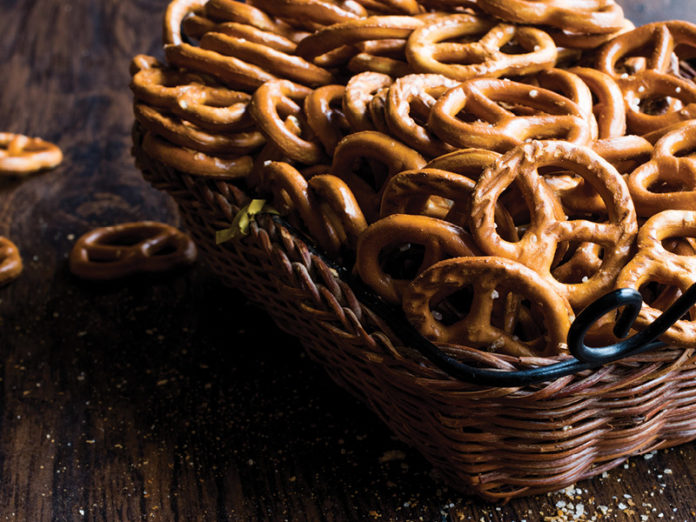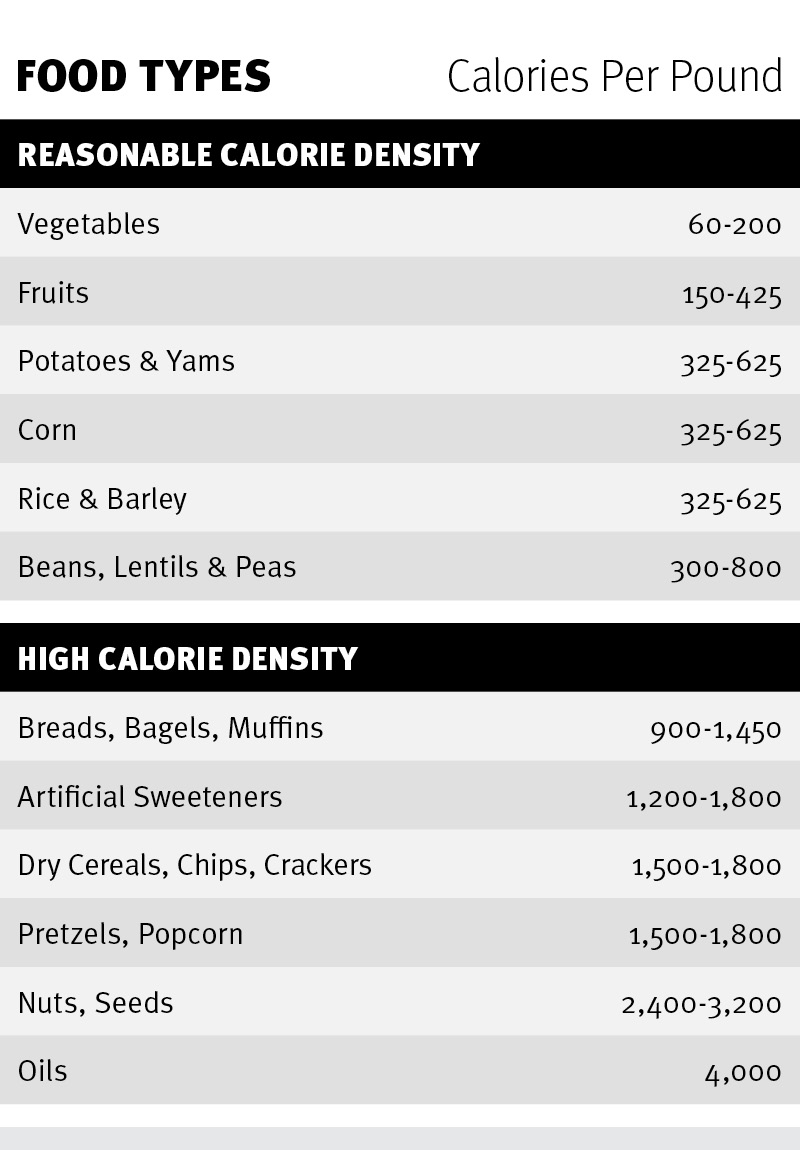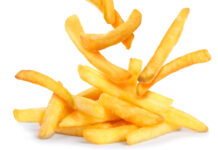
Understanding caloric density is key to establishing an intelligent and beneficial approach to sustainable plant-based eating. Calorie density is a measure of food’s calorie (or energy) content relative to its weight or volume.
Choosing foods with a low-calorie density aids weight loss and can reduce lung and heart disease, stroke and cancer substantially. Since plants are low in caloric density you can eat a higher volume of them without gaining weight. For example, a vegetable that contains 30 calories per 100 grams has a low calorie density, while chocolate contains 550 calories per 100 grams and thus has a very high calorie density. Therefore, you can eat more vegetables than chocolate without risking weight gain.
Typically, low calorie food tends to contain more fibre and water (and less fat), which help you feel fuller and thus less likely to overeat. Foods with a higher calorie density are often processed; it takes your brain longer to achieve the full feeling when consuming these types of foods. Overeating these types of foods is typically the cause of weight gain and a decrease in health.
If you’re committed to altering your diet to reap the benefits of a calorie dense regime, it is key to know which foods are healthy choices. A typical balanced diet contains vegetables, proteins, fruits, dairy and carbs. Protein selections from a plant-based diet will be leaner and less dense than anon-plant-based diet, which are often higher in unhealthy fats.
Choose foods that are not processed, are whole and grown under ethical conditions. The reason being that they likely will not have been treated with chemicals that cause sickness and will likely be much fresher and digested easier once consumed.
The time you eat is also important. Loading your calories earlier in the day will help maintain balanced and productive energy throughout the day and reduce quick-hit cravings such as sugary treats which translate to weight gain and minimal nutrition.
This chart provides some guidelines to the types of foods and their calorie density to assist you in making your nutrition choices.
















